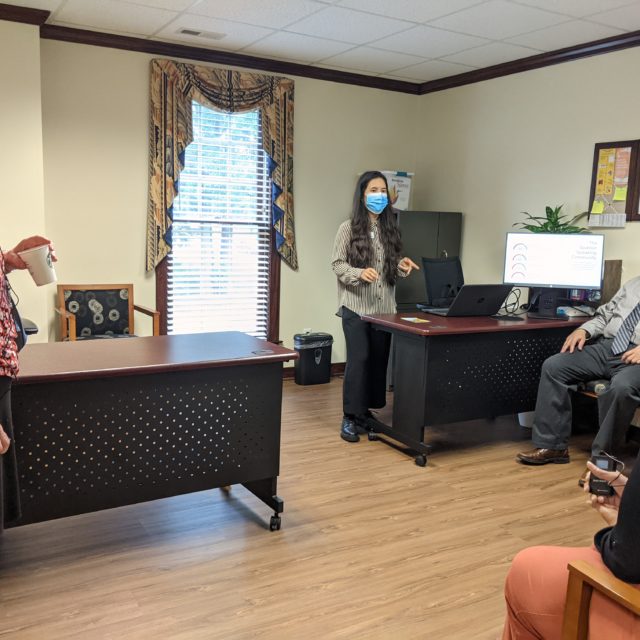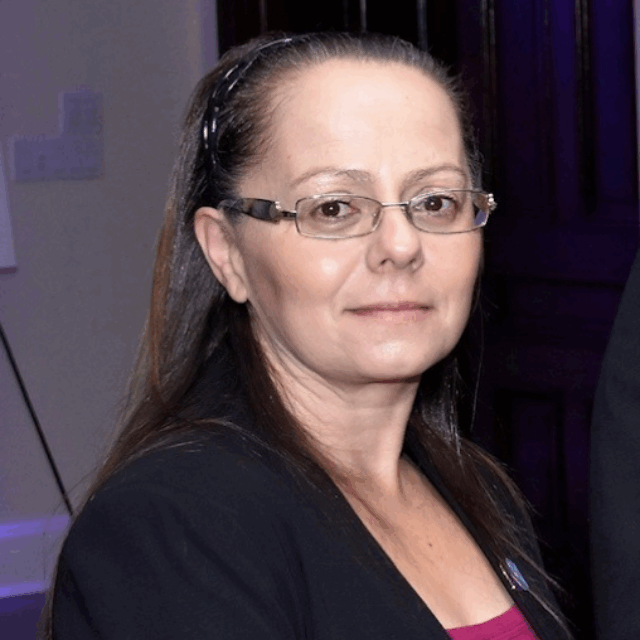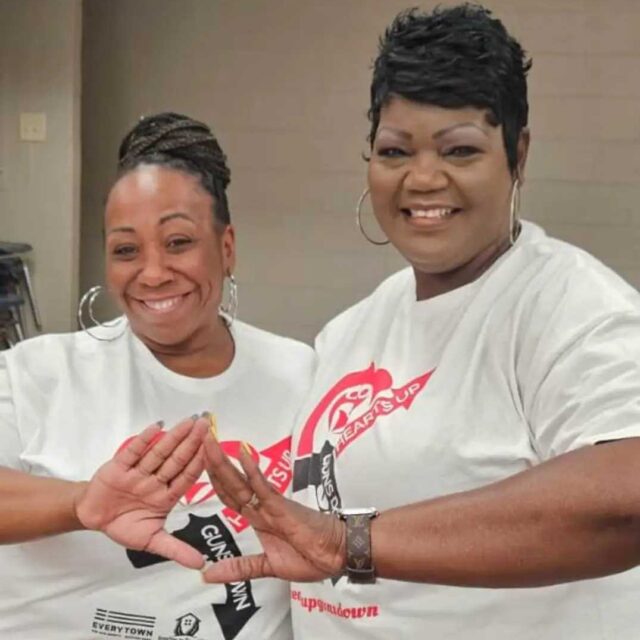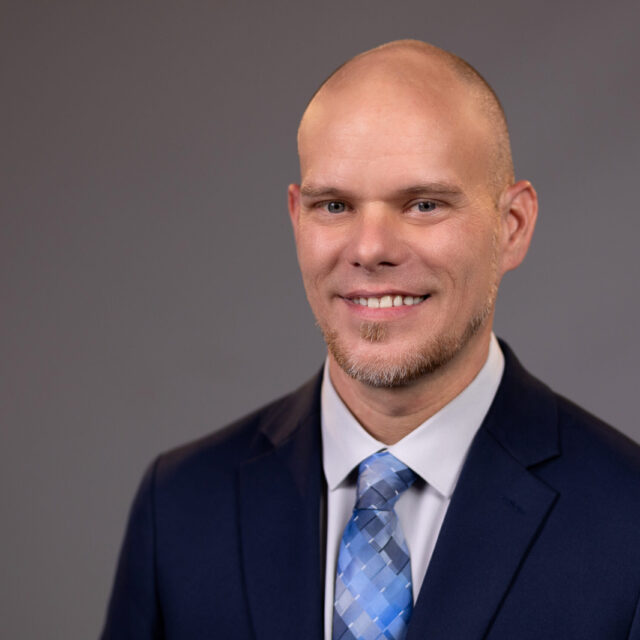Lowering the language barrier and building trust as domestic violence service providers

10.27.2021
As an immigrant and a survivor of domestic violence, language, culture, and power dynamics are topics of endless discussion and discovery. I am the language access coordinator and interpreter for Latinos in Virginia Empowerment Center, an organization that provides education, advocacy, and support to Spanish-speaking individuals affected by violence in Virginia. I oversee the implementation of language access practices according to federal mandates and coordinate and direct the Spanish/English Interpreter Bank, which was created to lower the language barrier experienced by Spanish-speaking victims.
Being in healthy relationships is key to ending systemic and cyclical violence—including the relationships between survivors and their service providers.
In this work, I find that it is important to think about the relationship between language and power dynamics, along with the values and practices around them. I appreciate that communicative autonomy can be a channel for empowering people who are most prone to silence, which can shape the circumstances for violence to continue. I believe that being in healthy relationships is key to ending systemic and cyclical violence—including the relationships between survivors and the service providers they come into contact with when they break their silence—despite the risk and fear they feel.
It is important not to just lower the language barrier, but to also empower survivors and treat them as the expert of their own experience.
Prevention means that there are resources available in the community to give individuals the tools to be aware of and practice safety around certain issues. For the population that we serve, this means Spanish resources are available and accessible. When we come into contact with survivors seeking help, we have to ask, “is there a gun in the house?” to further know how to navigate the situation. If the answer is yes, particularly when the survivor is undocumented, there is often fear of talking to the police. This sometimes creates barriers, which would otherwise not be present for English-speaking citizens, due to a lack of awareness about police protocol, as well as a lack of language access protocol implementation on the side of the law enforcement. It is important for linguistically and culturally appropriate organizations to develop the materials to inform the community about gun violence in order to prevent it, especially given the fact that Latino people are disproportionately impacted by gun violence.
I appreciate being able to empower survivors through communicative autonomy. As an Interpreter Bank, we want to make sure that language is not weaponized as another power dynamic in their life. I appreciate being able to talk to service providers about how to be collaborative in creating multilingual spaces rather than just checking off a box that says they provided language access. It is important not to just lower the language barrier, but to also empower survivors and treat them as the expert of their own experience, and thus have very important things to say, hear, and contribute to the conversation, which requires adequate language access coordination and trained interpreters.
Trust is our most important asset as interpreters.
It is always memorable when a survivor indicates they feel heard, understood, and aware of their rights. This can be demonstrated through head nods and other engaged body language.
Once a client shared that previously a court-assigned interpreter was not interpreting what they were saying. The interpreter was silencing her and made it very clear that her abuser yelled a death threat to her in the courtroom, which went uninterpreted and thus unnoticed. Knowing that her history with interpreters was very delicate, it strikes me every time I see her for an appointment that she welcomes and greets me with joy. I have heard various times that clients feel more comfortable with our interpretation than that of language lines or untrained but bilingual individuals. They of course often highly prefer one of our trained interpreters over asking their bilingual children to interpret in such a high-stakes situation. Trust is our most important asset as interpreters, and to know that both service providers and survivors feel that with us has been a gratifying experience, especially considering it seems that many have unfortunate experiences with interpreters.
Learn more about Latinos in Virginia Empowerment Center
We provide education, advocacy, and support to Spanish-speaking individuals affected by violence in Virginia in order to ensure that they can access services that empower them to become happy, healthy, and self-sufficient.
Learn More




